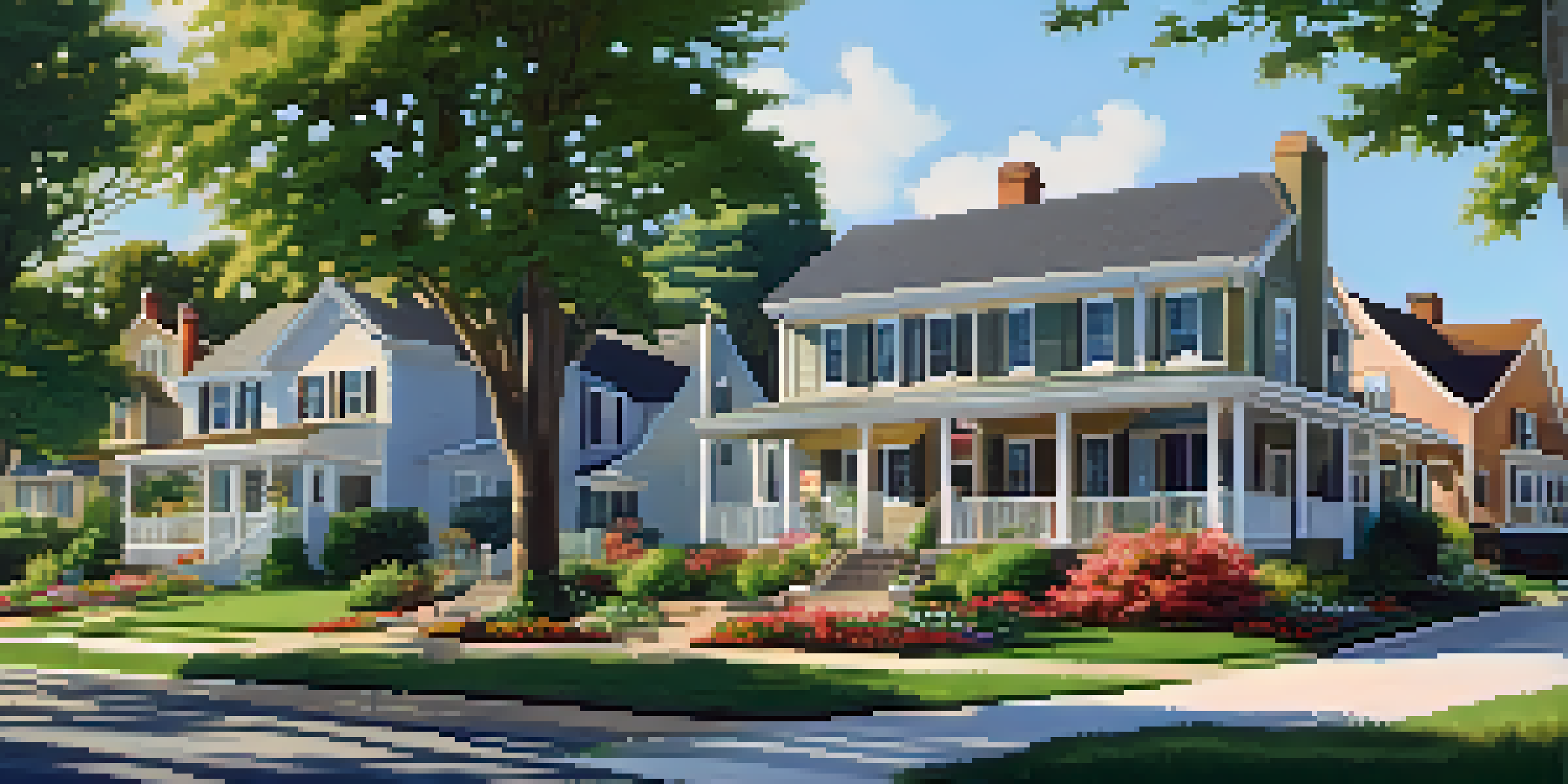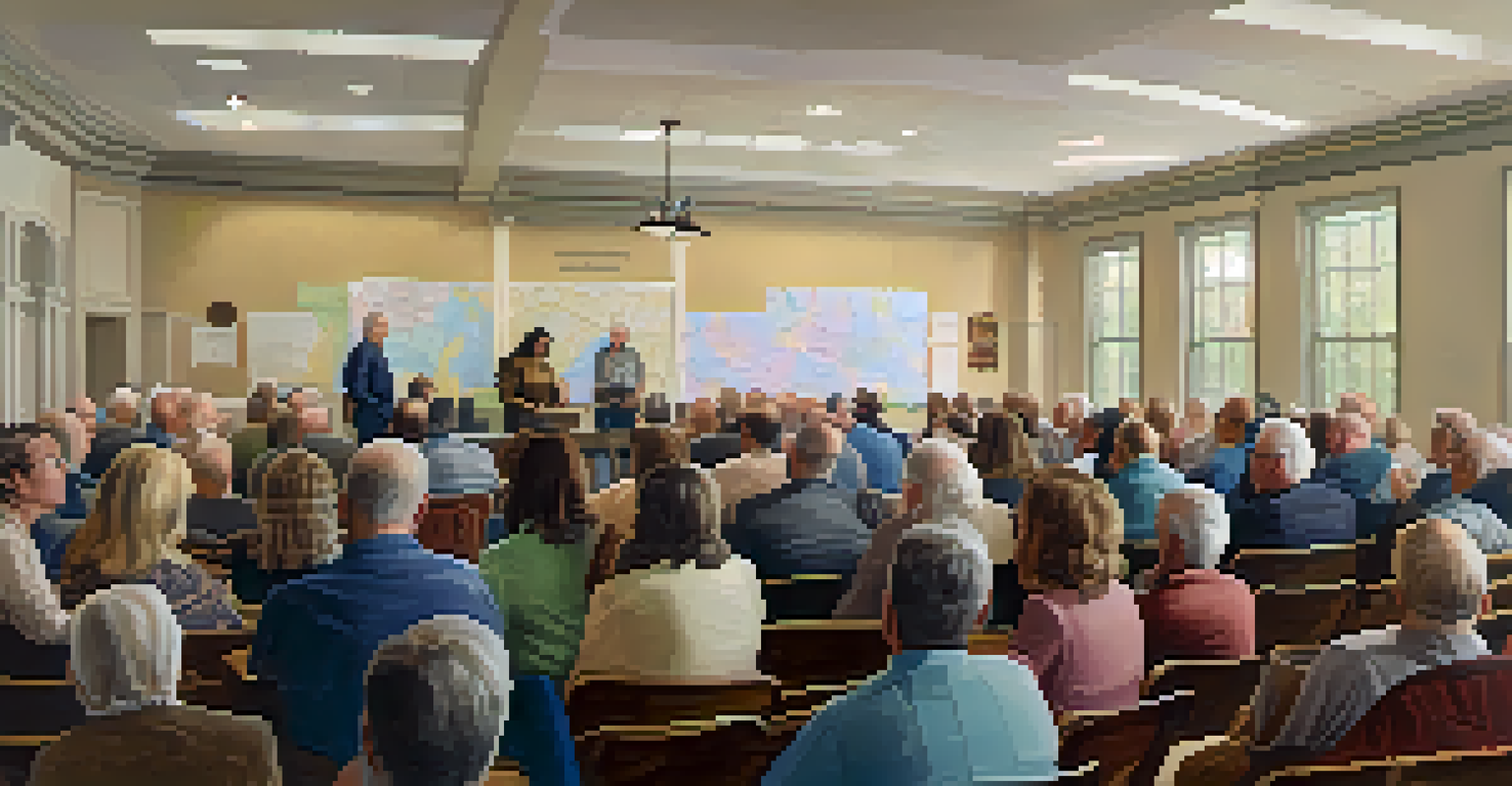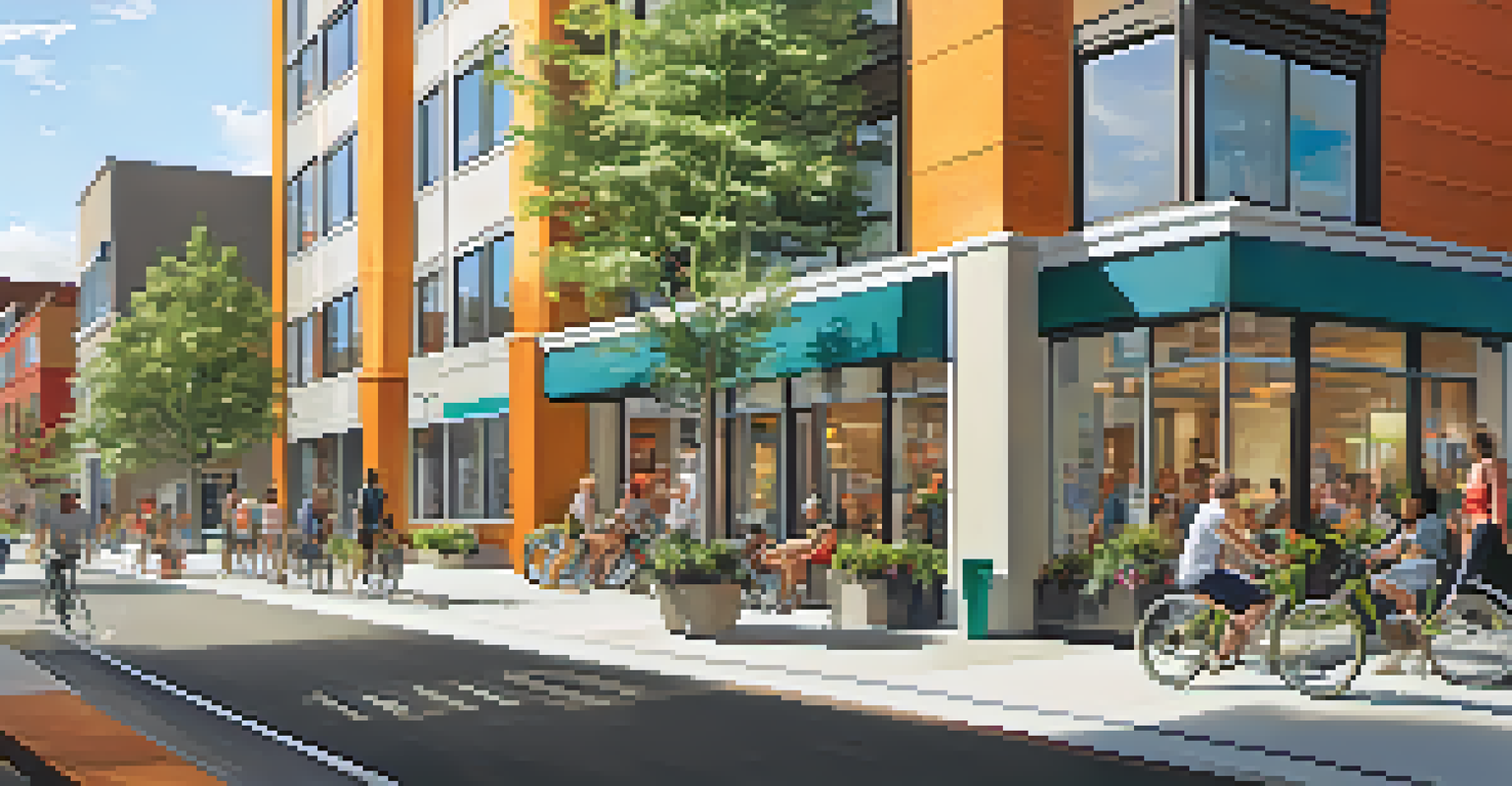Zoning Laws: Protecting the Rights of Homeowners

Understanding Zoning Laws and Their Purpose
Zoning laws are regulations that dictate how land can be used in a given area. They help ensure that residential, commercial, and industrial spaces are appropriately separated, which ultimately protects the quality of life for homeowners. By defining these parameters, zoning laws prevent potential conflicts that could arise from incompatible land uses, such as a factory next to a home.
Zoning is not a dirty word; it is an important and necessary tool for community organization and development.
These laws are established by local governments and can vary significantly from one municipality to another. For example, in some neighborhoods, you may find strict zoning laws that only allow single-family homes, while in others, mixed-use developments are encouraged. Understanding your community’s zoning regulations can empower homeowners to advocate for their interests.
Moreover, zoning laws also aim to promote orderly development. They guide infrastructure investments and community planning, ensuring that growth is sustainable. By maintaining a balance between various land uses, zoning laws help homeowners enjoy a stable and pleasant environment.
How Zoning Laws Protect Homeowners' Property Values
One of the most significant benefits of zoning laws is their role in maintaining property values. When zoning regulations are enforced, they help create a predictable environment for homeowners, making their investments more secure. For instance, if a residential neighborhood is protected from commercial encroachment, homeowners can feel confident their property values will remain stable.

Additionally, zoning laws can prevent overcrowding and overdevelopment, which can lead to decreased property values. When communities plan appropriately for growth, it ensures that infrastructure, such as roads and schools, can handle the increasing population. This foresight ultimately benefits existing homeowners by preserving the character and desirability of the neighborhood.
Zoning Laws Ensure Community Stability
Zoning laws regulate land use to prevent conflicts between residential, commercial, and industrial spaces, promoting a stable environment for homeowners.
Moreover, when zoning laws restrict certain types of developments, they create a sense of exclusivity. Homeowners often feel more secure knowing that their neighborhood is protected from undesirable projects, such as high-rise buildings or industrial operations. This sense of security can further enhance the appeal of a community.
Zoning Variances: What Homeowners Need to Know
A zoning variance is a special permission that allows a property owner to deviate from the established zoning regulations. Homeowners may seek a variance for various reasons, such as wanting to build an addition that exceeds height restrictions or operating a business from their home. Understanding how variances work can be crucial for homeowners considering minor adjustments to their property.
Good zoning is like a good map: it helps you navigate the complexities of land use and community needs.
Applying for a zoning variance typically requires homeowners to demonstrate that their request won't adversely affect the surrounding area. This process involves public hearings and reviews by local zoning boards. While it may seem daunting, this system ensures that the interests of the community are considered alongside individual homeowner needs.
It's important to note that not all variance requests are granted, and the process can vary depending on local laws. Homeowners should be prepared to present their case clearly and gather support from neighbors. A successful variance can allow homeowners to enhance their property while still adhering to the spirit of the zoning laws.
The Role of Homeowners Associations in Zoning
Homeowners associations (HOAs) often play a significant role in managing community standards and enforcing zoning laws. These organizations help ensure that property owners adhere to specific guidelines, which can include architectural styles, landscaping, and even the types of businesses allowed within the community. By doing so, HOAs protect the collective interests of homeowners.
However, it's essential to understand that HOAs have their own set of rules, which may be stricter than local zoning laws. For instance, while local zoning may allow for a home business, an HOA might prohibit it entirely. Homeowners should familiarize themselves with both local regulations and HOA rules to ensure compliance.
Protecting Property Values
By maintaining clear zoning regulations, homeowners can feel secure that their property values will remain stable and protected from undesirable developments.
Working in tandem, zoning laws and HOAs can create harmonious communities. While zoning laws set the broader framework, HOAs can enforce local standards that enhance neighborhood aesthetics and property values. This collaborative approach ultimately benefits all homeowners.
Challenges and Controversies Surrounding Zoning Laws
While zoning laws aim to protect homeowners, they can also spark controversy. Some residents argue that overly restrictive zoning can limit their property rights and stifle growth. For example, if zoning regulations are too stringent, they may hinder new businesses from establishing themselves, which can hurt the local economy and job market.
Additionally, zoning laws can unintentionally perpetuate social inequalities. In some cases, restrictive zoning practices may lead to 'exclusionary zoning,' where certain areas become accessible only to higher-income residents. This can create division within communities and limit diversity, which is essential for a thriving neighborhood.
Navigating these challenges requires ongoing dialogue among homeowners, local governments, and community stakeholders. By participating in discussions about zoning regulations, homeowners can advocate for changes that reflect their needs while still protecting the community’s integrity.
The Future of Zoning Laws: Trends to Watch
Zoning laws are continually evolving to meet the changing needs of communities. One trend gaining traction is the push for more flexible zoning regulations, such as those that allow for mixed-use developments. These changes aim to create more vibrant neighborhoods where people can live, work, and play, ultimately benefiting homeowners by enhancing their quality of life.
Another trend is the rising focus on sustainability and environmental considerations in zoning. More communities are implementing regulations that promote green spaces, reduce urban sprawl, and encourage public transportation. Homeowners can benefit from these initiatives, as they often lead to healthier living conditions and increased property values.
Homeowner Advocacy in Zoning
Homeowners can influence zoning laws by participating in local meetings and joining advocacy groups, ensuring their interests are represented in community planning.
Furthermore, technology is playing a critical role in shaping the future of zoning laws. With advancements in data collection and analysis, local governments can make more informed decisions about zoning regulations. Homeowners who stay informed about these trends can better anticipate changes that may affect their property and community.
Getting Involved: Homeowners and Zoning Advocacy
Homeowners have a unique opportunity to influence zoning laws in their communities. By attending local government meetings and engaging in discussions about proposed changes, they can voice their opinions and advocate for their interests. This involvement not only empowers homeowners but also fosters a sense of community among neighbors.
Joining local advocacy groups can also amplify homeowners' voices. These organizations often focus on specific zoning issues and work to educate residents about their rights and responsibilities. Through collective action, homeowners can effectively lobby for zoning changes that align with their vision for their community.

Ultimately, being proactive in zoning advocacy allows homeowners to shape their neighborhoods positively. By participating in the zoning process, they can ensure that their rights are protected while contributing to the development of vibrant, thriving communities.